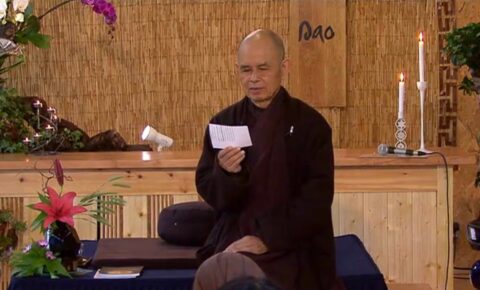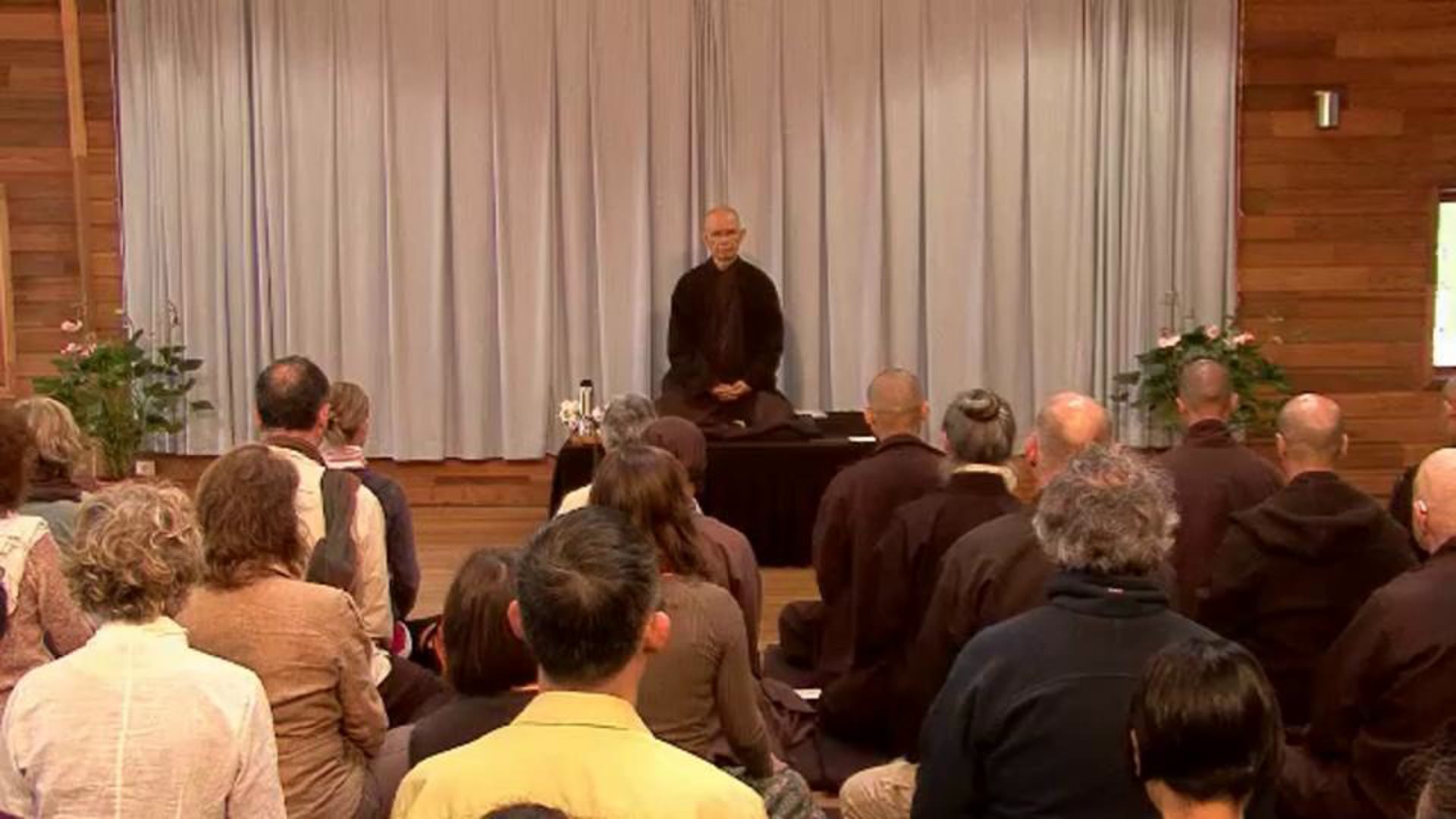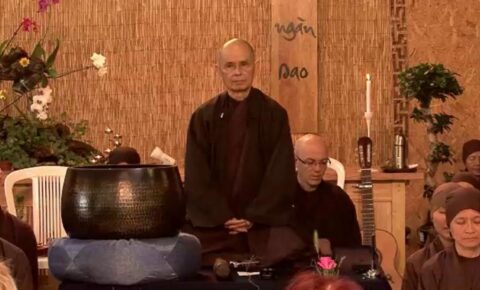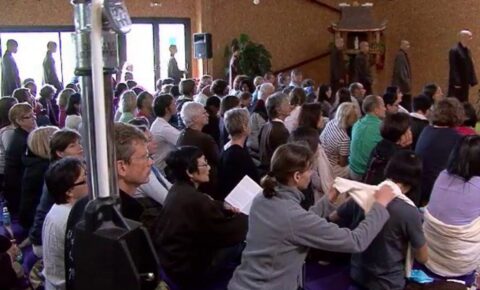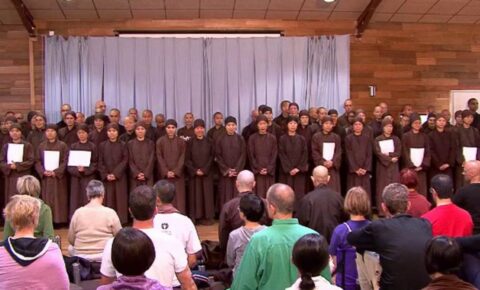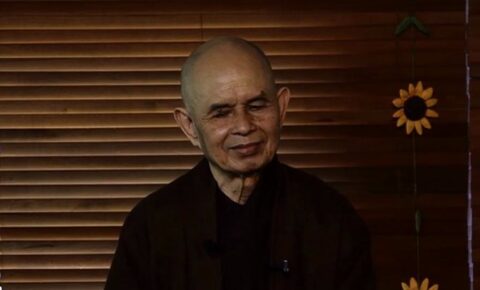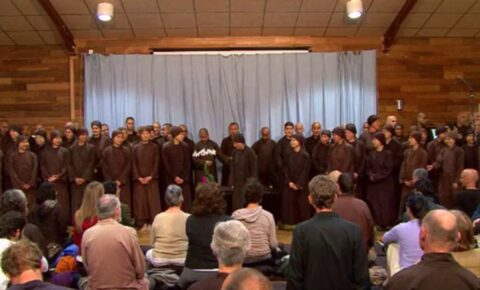This is the third Dharma talk of Thay from the Science of the Buddha Retreat, offered in the Upper Hamlet of Plum Village on Monday, June 4th, 2012. The talk includes a dialogue with the University of Virginia Astrophysicist Dr. Trinh Xuan Thuan.
Sitting Meditation
Chanting
30:00? Main Talk
31:00? Sitting in Mindfulness
37:00? Inviting the Bell
52:00? Knowledge as an Obstacle
53:40 Story of the Man Whose Son Disappears
58:55 Afflictions as an Obstacle
1:01:25 Four Foundations of Mindfulness
1:03:40 Mindfulness of the Body
1:05:55 Simile of a Farmer with the Bag of Seeds
1:09:08 Mindfulness of Feelings
1:11:30 Mindfulness of the Mind
1:20:30? Two Layers of the Mind: Mind Consciousness & Store Consciousness
1:22:45 The Practice of Right Diligence
1:24:40 Concentrating & Liberating the Mind
1:26:50 Mindfulness of Objects of Mind
1:28:25 Dual-Grasping: Perceiver and Perceived
1:44:20 Subject and Object of Grasping: Grahaka and Grahya
1:47:50 Contemplation on Impermanence
1:54:40? Contemplation on Non-Craving
1:56:45 Contemplation on Nirvana
1:58:30 Two Levels of Reality: Historical and Ultimate Dimension
2:07:40 The Discriminating Mind: vikalpjnana
2:12:15 The Principle of Identity (A=A≠B)
2:14:30 Middle Way Dialectics: The New Logic Proposed by the Buddha (A≠A=A)
2:15:15 Conventional Designation
2:23:40 Contemplation on Letting Go
2:24:30 Mindful Movements
2:38:45 Q & A with Professor Trinh Xuan Thuan
2:39:15 Question 1: Buddhism says that one has to get rid of all previous knowledge, to have a clear mind. I think in science one has to know things that were done before, but keep a clear and open mind. Does Thay agree with this?
2:45:00 Question 2: You said something about inanimate matter has intelligence. I’m not sure this is the current scientific view now. Even if you claim that an electron has consciousness, then I say that we have to say there are varying degrees of consciousness. I would say that an electron is very different from a human being. An electron has mass, its electric charge, and its spin, that’s it. Once you’ve seen an electron, you’ve seen them all. Also, a flower. Chimpanzees have some human notion, so close to us in genes. I think there are different degrees of consciousness, and we cannot put everything on the same level. What is your response to that?
3:03:00 Question 3: What is the concept of time in Buddhism? We have the impression that time passes, from the past to the present to the future. In science we learn that past, present and future are always there, and time is not the same for everyone, depending on the movement of the observer. Although there is a psychological time that seems to be there. That is the physical conception of time. So what is the Buddhist concept of time?
3:13:00 Question 4: I like Buddhism not only because I was raised in it, but because it is very logical. It has the spirit of experimentation that a scientist would accept. The mind is the instrument. Objective and subjective reality, that’s something true. As a scientist I realize that an observer is very important as part of what he sees. If you say that there is no objective reality independent of the mind, do you think, for example, that if you do not look at the moon, the moon does not exist? Do you really believe that an alternate universe without consciousness would not exist, if no one could be conscious of it?
